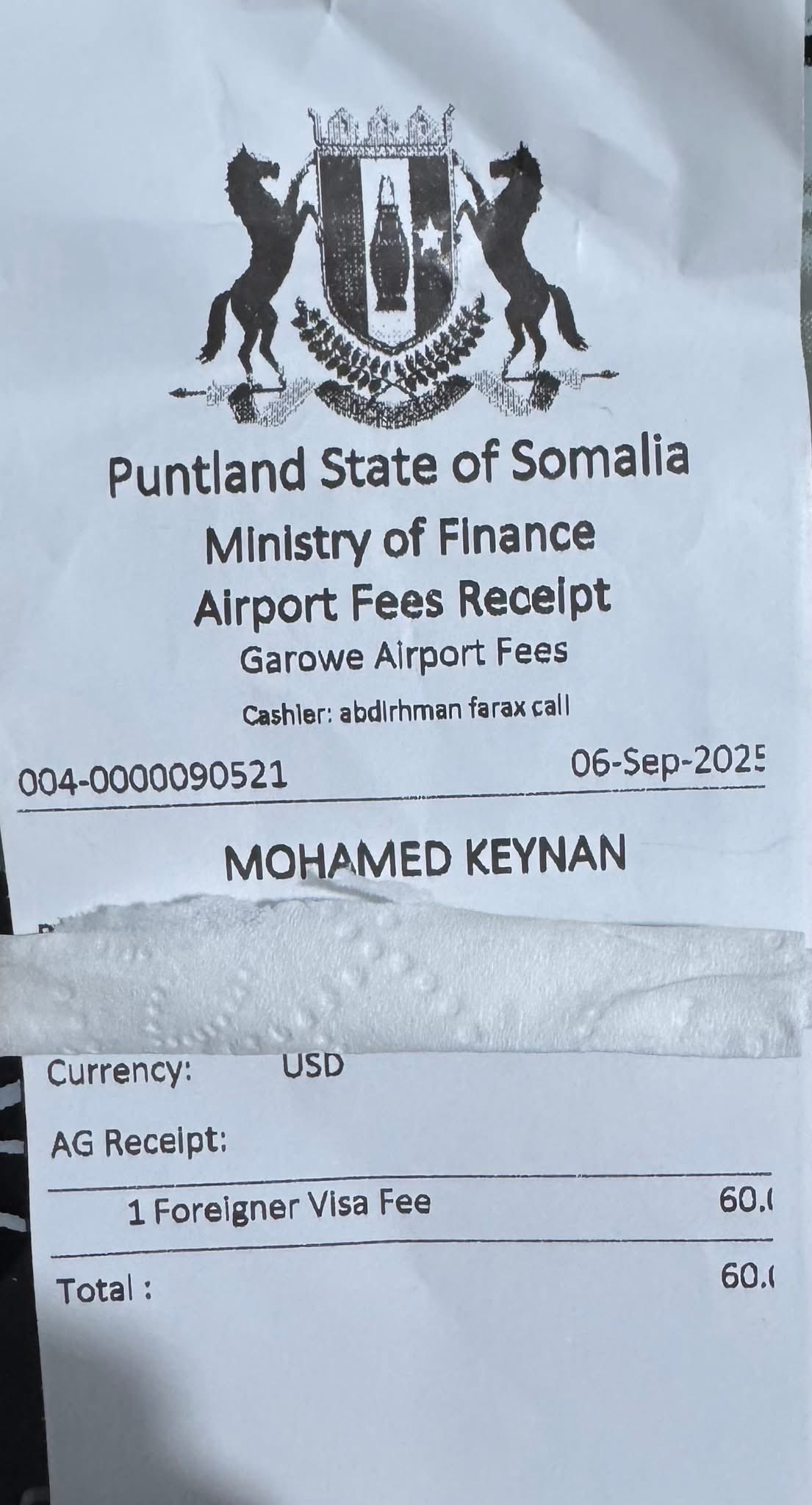Facebook Twitter (X) Instagram Somali Magazine - People's Magazine
Puntland has strongly opposed the Federal Government of Somalia’s newly introduced electronic visa system, arguing that Mogadishu has gone beyond its mandate by trying to control travel and entry into regional territories. The dispute adds another layer of tension to the already strained relationship between the federal government and the semi-autonomous state.
On Tuesday, Puntland’s Minister of Information, Mahmoud Aydiid Dirir, openly criticized the initiative, describing it as an attempt to take powers that do not belong to Mogadishu. He insisted that Puntland has the authority to decide on visa matters and manage airports located within its jurisdiction. According to Dirir, the federal government is acting without consultation or legal grounds.
“We condemn it — it is robbery what the Federal Government of Somalia is doing,” Dirir said. “Until a formal agreement is reached, the central government has no legal authority to control people landing at the country’s airports.”
The comments came in response to the federal government’s rollout of the Electronic Visa and Travel Authorization System (E-Visa/ETAS) on September 1, 2025. Through a dedicated online portal, the system requires all travelers to apply for visas before entering Somalia. Officials in Mogadishu argue that the move will simplify travel procedures, enhance transparency, and strengthen security at the country’s borders.
Federal leaders have hailed the new digital system as a milestone in modernizing immigration services, saying it aligns Somalia with international standards. They believe the platform will help manage the flow of travelers more effectively and reduce corruption linked to manual visa issuance. However, Puntland sees the matter differently. For them, it is not only about how visas are processed but also about who has the right to control airports and revenues generated from international travel.
The dispute highlights a long-running power struggle between Puntland and the federal government. While Somalia’s constitution envisions a federal system where authority is shared, the lines of power are often unclear, especially in areas like taxation, natural resource management, and security. Airports and border control have been some of the most sensitive issues because they involve both revenue and influence. Puntland argues that since it manages its own airports, Mogadishu should not impose regulations without reaching an agreement with regional authorities.
This disagreement over the e-visa system is the latest example of the mistrust that continues to define relations between Puntland and the federal government. Over the years, Puntland has accused Mogadishu of centralizing power and ignoring the autonomy of federal member states. At the same time, Mogadishu has argued that certain functions — especially immigration and national security — must remain under the federal government’s control to ensure unity and consistency across the country.
Observers say the clash over the electronic visa system could escalate if both sides fail to find common ground. On one hand, the federal government insists the new digital process will benefit the whole country by making it easier for visitors to apply for visas, while also ensuring stronger oversight at points of entry. On the other hand, Puntland fears that accepting the system without negotiation would weaken its authority and set a precedent for Mogadishu to override regional powers in other areas.
The situation now raises questions about Somalia’s federal model and how responsibilities should be divided between the central government and member states. Unless a formal agreement is reached, the standoff over visas and airport control could deepen political divisions, potentially affecting the stability of the country.
As Somalia works to modernize its institutions and rebuild after decades of conflict, disputes like this underline the need for dialogue and cooperation. Without it, reforms that are intended to strengthen the country risk being overshadowed by internal disagreements between federal and regional authorities.


